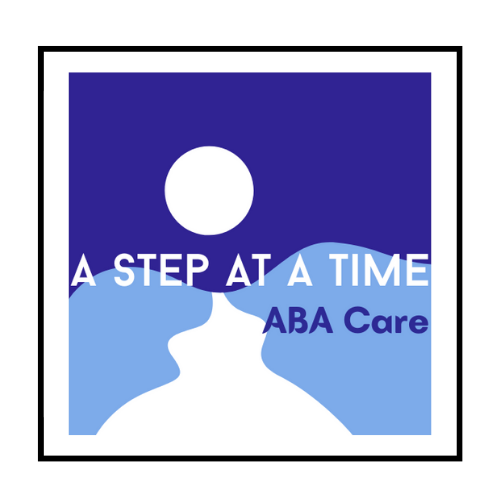Mommas, We Need You Healthy ❤
A Must-Have: Women’s Medical Screening Checklist by Age
Yes! Our mission at A Step At A Time is to get little ones with an autism diagnosis to become their best independent selves.
But today, we pause for a second and treat mommas, who continuously support and enhance our work with their children in the backdrop, to one central list of recommended preventative health visits broken down by age range. Mommas should know exactly what their next check-up should involve and when that should be, so they can stay on top of their health throughout life chapters.
We know - exams are not fun and sometimes scary or cumbersome, and with all the juggling, you have no time to schedule them or get there anyways. Take a breath… One step at a time, we need you to prioritize yourself. Exams are critical to maintaining positive health outcomes. Similarly to our Applied Behavior Therapy (ABA)’s effectiveness, the earlier women start their screenings the better. Besides, a healthy parent makes a healthy little one.
What to do in your 20s and 30s:
Schedule an annual well visit with an OB-GYN with whom you feel comfortable:
Get a clinical breast exam.
Have an honest conversation about your sexual history to form a plan for sexually transmitted infection (STI) testing.
Women ages 21-29 will require a Pap test and pelvic exam every 3 years. A Pap test screens for cervical cancer and Human Papillomavirus Vaccine (HPV). According to ACOG guidelines, it is a common misconception that a Pap test and pelvic exam are needed every year. Women ages 30-65 will require cervical cancer screening every 3 years and HPV screening every 5 years.
Family planning is also an important topic to cover. Discuss contraception, reproductive health, and reproductive planning in the context of your pregnancy history if applicable. For example, sharing blood pressure issues, such as preeclampsia while pregnant, is important information.
Have the OB-GYN screen you for blood pressure, cholesterol, weight management, and lifestyle factors such as diet and exercise.
You may also want to consider genetic testing in case there is a strong family history of cancer (breast, ovarian, cervical, colon).
What to do in your 40s and 50s:
We recommend the following annual check-ups:
A primary care visit.
A routine blood test and lipid screening (or as often as needed).
Breast cancer screening as of age 45. Women ages 40 – 44 can start annual mammograms if they desire. Women 55 and older can switch to every 2 years if preferred.
The American Cancer Society recommends starting colonoscopy screening at age 45 and sooner if there is a family history of colon cancer. For those without a history of colon cancer, it is recommended to get a colonoscopy at least every 10 years after the initial screening. The frequency will vary from one individual to the next based on family history and colonoscopy results.
The U.S. Preventive Services Task Force recommends adults 55 and older should be screened if they have smoked for 30 years and currently smoke or they have quit within the last 15 years.
What to do in your 60s and older:
Keep maintaining the above check-ups at the right frequency. In addition, start:
Osteoporosis screening. Women reaching 65 years old with normal bone mass should have a Bone Mineral Density (BMD) test every 15 years. If you are subject to certain risk factors such as smoking, alcoholism, history of hip fracture in a parent, or rheumatoid arthritis, run more frequent testing.
Skin cancer testing is recommended once a year unless there is a family history of sun cancer or a history of prolonged sun exposure.
A cardiology screening is also required annually, especially if you are African American, have had preeclampsia or high blood pressure during pregnancy, or have a family history of heart disease.
Teens:
As for your teens, here are our recommendations:
The Centers for Disease Control and Prevention (CDC) recommends all girls and boys get their HPV vaccine at age 11 or 12. The HPV protects against developing certain cancers later in life such as cervical cancer. Bring this up with your pediatrician.
Have a first visit to a trusted OB-GYN as early as 13 years old for sexual activity counseling. The ideas of sexual activity, taking care of one’s body, and respecting one’s body first as well as how to protect oneself can be introduced. The consultation can also cover sexual orientation and gender desires. It is essential to find an OB-GYN who makes your child feel comfortable discussing these sensitive topics.
Starting at 19, schedule an annual well-woman visit with the OB-GYN to begin clinical yearly breast exams. At these visits, we also recommend checking blood pressure to assess for factors such as diabetes, obesity, and heart disease, and running a lipid screening to check cholesterol and triglyceride levels. You may also want to discuss alcohol, drug use, and tobacco use as well as anxiety or depression.
Pap smears are recommended for 21-25 years old since research suggests that the risks of offering cervical screening before age 21 outweigh the benefits. If sexually active, women younger than 25 should be tested for gonorrhea and chlamydia annually.
Now you should feel empowered. Mommas, do not allow nervousness, anxiety, or procrastination to delay screenings and visits. A healthy parent makes a healthy little one. Just take it one step at a time. The more engaged you are, the more empowered you are to live long and healthy lives.
We are your staunch supporters and admirers, always. Thank you for choosing us to treat your little ones.
Your A Step At A Time Care Team ❤

